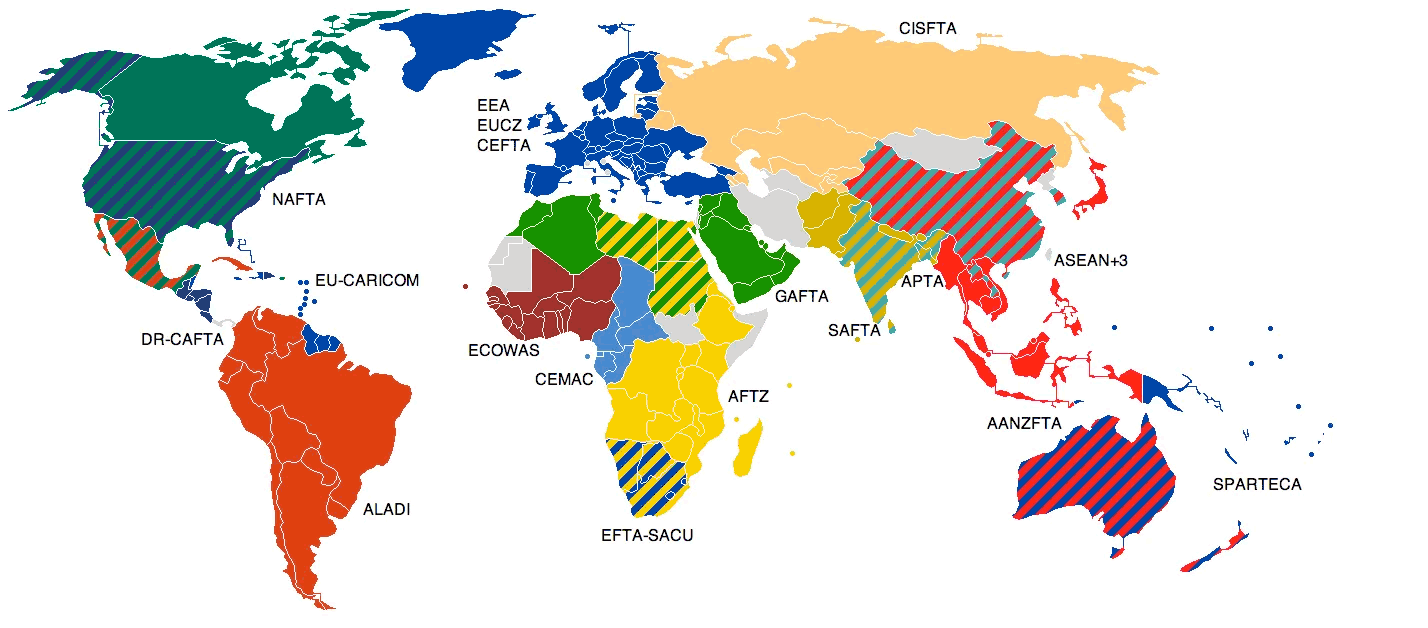The paradox of wealth and geography – and their impact on growth and innovation
Globalisation may be considered by many a failed experiment: borders and people movement are increasingly fraught with issues related to visa restrictions, the import of goods and services faces an increase in bureaucracy and tax burdens, religious and cultural affiliations are turning communities inward making them increasingly insular, and foreign trade – with its usual import and export activities – has ceased to be fun.
One could argue that the only globalised place of our society today is the virtual space: social media networks, e-commerce sites, crypto industries, and online education services. This a fascinating paradox of virtual borders being indirectly proportional to land borders.
Creativity and innovation know no physical boundaries; they are not bound by one’s passport, religion, sexual orientation, or skin colour. Looking inward and trying to impose a variety of restrictions – of either goods, services or type of workforce employed – will seldom create, let alone sustain, wealth growth curves.
Humans are social beings, and from co-operation and collaboration across often self-imposed divides, the most incredible feats of technological and value-creation opportunities arise.
Today, we see the formation of geo-economic blocs; blocs that are not a part of the traditional ones related to the free movement of goods and/or services such as the European Union or NAFTA, but blocs that are mostly driven by a nationalistic, internalised, and geopolitical mandate.

Credit: Economics Help
Nuclear proliferation, together with a global arms manufacturing industry worth in excess of USD 360 billion annually, are giving rise to national and regional protectionism, creating the perfect storm for self-sufficiency and hindered global activism and wealth.
While the geopolitical games and propaganda are known, ridiculed, and even caricaturised by many, there is a certain segment of global wealth that will be dramatically diminished should such geo-economic segregation become formalised: financial markets – including all types of investors – and start-ups (new businesses).
Should such a near-future scenario arise, the most negatively affected will be the global trade: of products, services, and innovation. A start-up based in Russia today, for instance, may find it very difficult to secure funding from many western investors – the Russian legal and banking systems, while seemingly complex and strict, are often at the latitude and pleasure of the Russian political agendas and interests.
Similarly, a Chinese artificial intelligence or machine learning start-up may find itself subject to complex scrutiny by – and even asked to assign its intellectual property to – the Chinese intelligence apparatus.
The risk of conflicts in the geo-economic and geopolitical blocs, compounded by a rise in youth unemployment and job insecurity in developing economies - furthermore inflated by significant weather conditions which negatively impact the agricultural output - is very high.
The winners in any conflict that is related to geo-dominance or political agendas are no others than the movers and shakers – often interest groups and lobbyist organisations – that have financed politicians and political parties, or those who will significantly gain from the nature and the aftermath of the conflict: arms industry, energy industry, manufacturing, and even pharmaceutical industry.
The losers of such conflicts, or of any geo-economic bloc creation, are the wealth and investment markets, together with the myriad of small businesses and entrepreneurs that fuel innovation, growth, and global co-operation.
Solutions to the problems faced by the humanity right now can only be identified and successfully deployed by humanity itself: and that implies collaboration, co-creation and the freedom to innovate, evaluate concepts and build a positive legacy.
Technology can help the humankind achieve that much needed collaboration, co-creation and innovation if put to good use, and if used as a means to the betterment of us all, of our planet, and of our own evolution as a species.